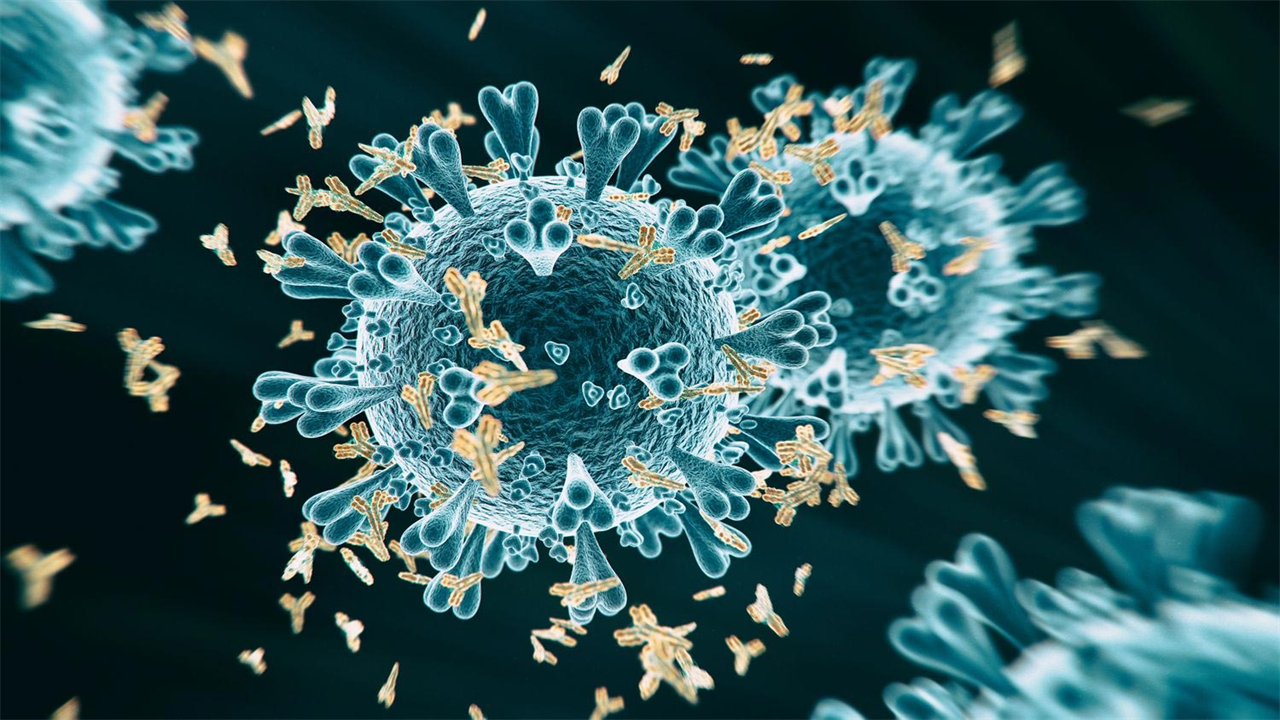Antibody-Disease Enhancement (ADE) of COVID-19 Does Not Appear To Occur in Animal Models
0 View
Share this Video
- Publish Date:
- 31 August, 2021
- Category:
- Covid
- Video License
- Standard License
- Imported From:
- Youtube
Tags

In the fight against viruses, antibodies have the potential to block or allow infection and worsen disease, leading to concerns about their use as a therapy for COVID-19.
In a study published in the journal Cell, Duke researchers showed in mice and monkeys that human antibodies lacked the ability to worsen SARS-CoV-2 infection and instead exerted their defensive powers against the infection. The findings help bolster evidence that antibodies are safe when given as treatments or induced by COVID-19 vaccines.
The two types of antibodies — those that neutralize the virus or those that enhance virus replication — have been the subject of much research, raising concerns that antibodies could cause serious infections in some recipients.
But the current study, led by scientists at the Duke Human Vaccine Institute, is the first to use animal models to examine what happens when SARS-CoV-2 antibodies are tested with the virus.
“Our study, in mice and monkeys, shows that antibodies that are potentially harmful in the test tube do not appear to be harmful in the context of SARS-CoV-2 infection in mice or monkeys,” said co-senior author Barton F. Haynes, MD, director of the Duke Human Vaccine Institute (DHVI).
“We’ve tested a number of disease-promoting antibodies in experiments on mice and monkeys — multiple studies with different antibodies — and found that disease amplification does not occur in the animals, which is good news for developing effective treatments and vaccines,” Haynes said. .
Senior author Kevin Saunders, Ph.D., director of research at DHVI, isolated more than 1,700 antibodies from people who had COVID and screened them for their effects on the virus.
“We quickly found a set that could block infections, including a set of antibodies that are eligible for clinical trials to prevent people from getting COVID,” Saunders said. “We also found a series of antibodies that, instead of preventing infection in tissue culture, they enhanced infection in the test tube.”
But in tests where the antibodies were administered to mice and monkeys, there were no effects in the body attributable to antibody administration. The presence of the infection-increasing antibodies also did not contradict how well the protective antibodies functioned in the body.
“These results in animal models suggest that treatments with SARS-CoV-2 antibodies or the induction of SARS-CoV-2 antibodies by vaccination have a low probability of exacerbating COVID-19 disease in humans,” Saunders said. “Our findings are immediately applicable to vaccine candidates against COVID-19 in development, as well as to antibodies and plasma used to treat COVID-19.”
Reference: “In vitro and in vivo functions of SARS-CoV-2 infection-promoting and neutralizing antibodies” by Dapeng Li, Robert J. Edwards, Kartik Manne, David R. Martinez, Alexandra Schäfer, S. Munir Alam, Kevin Wiehe, Xiaozhi Lu , Robert Parks, Laura L. Sutherland, Thomas H. Oguin III, Charlene McDanal, Lautaro G. Perez, Katayoun Mansouri, Sophie MC Gobeil, Katarzyna Janowska, Victoria Stalls, Megan Kopp, Fangping Cai, Esther Lee, Andrew Foulger, Giovanna E Hernandez, Aja Sanzone, Kedamawit Tilahun, Chuancang Jiang, Longping V. Tse, Kevin W. Bock, Mahnaz Minai, Bianca M. Nagata, Kenneth Cronin, Victoria Gee-Lai, Margaret Deyton, Maggie Barr, Tarra Von Holle, Andrew N Macintyre, Erica Stover, Jared Feldman, Blake M. Hauser, Timothy M. Caradonna, Trevor D. Scobey, Wes Rountree, Yunfei Wang, M. Anthony Moody, Derek W. Cain, C. Todd DeMarco, Thomas N. Denny, Christopher W. Woods, Elizabeth W. Petzold, Aaron G. Schmidt, I-Ting Teng, Tongqing Zhou, Peter D. Kwong, John R. Mascola, B arney S Graham, Ian N. Moore, Robert Seder, Hanne Andersen, Mark G. Lewis, David C. Montefiori, Gregory D. Sempowski, Ralph S. Baric, Priyamvada Acharya, Barton F. Haynes, and Kevin O. Saunders, June 18 2021 , Cell.
DOI: 10.116/j.cell.2021.06.021
In addition to Saunders and Haynes, include Dapeng Li, Robert J Edwards, Kartik Manne, David R. Martinez, Alexandra Schäfer, S. Munir Alam, Kevin Wiehe, Xiaozhi Lu, Robert Parks, Laura L. Sutherland, Thomas H. Oguin III, Charlene McDanal, Lautaro G. Perez, Katayoun Mansouri, Sophie MC Gobeil, Katarzyna Janowska, Victoria Stalls, Megan Kopp, Fangping Cai, Esther Lee, Andrew Foulger, Giovanna Hernandez, Aja Sanzone, Kedamawit Tilahun, Chuancang Jiang, Longping V Tse, Ken Cronin, Victoria Gee-Lai, Margaret Deyton, Maggie Barr, Tarra Von Holle, M. Anthony Moody, Derek W. Cain, Aaron Schmidt, Tongqing Zhou, John Mascola, Barney Graham, Ian N. Moore, Robert Seder, Hanne Andersen, Mark G. Lewis, David C. Montefiori, Gregory Sempowski, Ralph S. Baric and Priyamvada Acharya.
The study was supported in part by a collaboration agreement with the Department of Defense/DARPA (HR0011-17-2-0069), the National Institutes of Health (UC6-AI058607, R01-AI145687) and the State of North Carolina through the Coronavirus Aid, Relief , and Economic Security Act (CARES Act). A full disclosure of funding sources is provided in the study.










